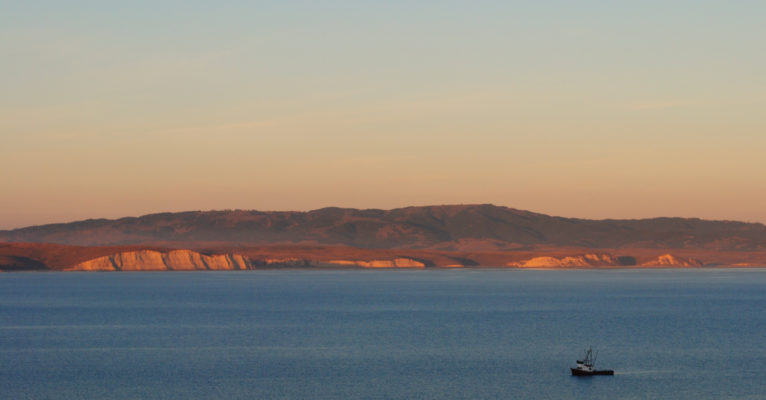Fisheries policy and Brexit: A difficult balancing act

A couple of weeks ago the European Council published its draft negotiation guidelines for the next stage of Brexit talks with the UK. The word “fishing” only gets mentioned once in the whole document, but the provision to which it was attached has caused controversy:
“trade in goods, with the aim of covering all sectors, which should be subject to zero tariffs and no quantitative restrictions with appropriate accompanying rules of origin. In this context, existing reciprocal access to fishing waters and resources should be maintained”
In other words, the EU is offering the UK tariff free trade in goods, but on the condition that existing access arrangements for EU vessels in UK waters are maintained. While leaving the Common Fisheries Policy and regaining control over the UK’s waters is an oft-repeated statement by the government, reports over the last couple of days suggest the UK may have conceded this point, at least during a transition phase.
Brexit and the politicisation of fisheries
This issue is politically charged. Those working in the UK’s catching sector backed Brexit by a margin of 92%, fuelled in part by a perception that other EU vessels have too much access to UK waters, to the detriment of the UK’s own fishing industry. Fisheries is also part of the government’s plan to deliver a ‘green Brexit’, and the 25 Year Environment Plan outlines the government’s ambitions for sustainability to be at the heart of a world-class fisheries management system once it leaves the CFP. So, while fisheries plays a limited role in the overall UK economy, it has political significance, especially in the context of Brexit. It is unsurprising, then, that there have been calls to reject the EU’s demand for reciprocal access.
The European Council’s guidelines set out an initial position on the future EU-UK relationship, and do not necessarily structure the final deal, which is still to be negotiated. But the EU’s opening gambit here highlights three challenges facing the UK government as it seeks to take back control of its waters.
Three challenges for the UK
Firstly, the EU’s draft negotiation guidelines focuses attention on the diversity within the fisheries sector. The catching sector overwhelmingly backed Brexit, but the fishing industry goes beyond those working at sea. Much of the seafood processing sector, for example, relies on exports and frictionless trade with the rest of the EU. Even within the catching sector there are differences. A recent report into the impact of Brexit on Welsh fisheries, which are dominated by shell fishing, found that in the short term at least, it would be better protected by maintaining the status quo. This goes to highlight the territorial dimension to fisheries policy, as the UK’s fishing industry varies considerably between England, Northern Ireland, Scotland and Wales. These differences extend to individual ports and communities too, with some heavily dependent on the fortunes of the local fishing fleet, while others rely on seafood processing and exports.
This leads to the second issue, which is that the government faces a significant political challenge in balancing these varying interests, both within and beyond the fishing industry. On the one hand the government’s primary objective is to avoid a cliff edge Brexit and secure a good deal with the EU. This reflects the views of those in the fishing industry (not to mention many in the wider UK economy) who rely on exports to the EU and are concerned about the detrimental economic impact associated with a ‘hard Brexit’. But on the other hand, the government will need to respond to the concerns of those in the fishing industry who backed Brexit, especially given that many in the catching sector already feel betrayed by years of government indifference. Reports that the UK may have conceded to the EU’s demands on reciprocal access, at least during a transition period, won’t do much to address these concerns.
Thirdly, it shows how fisheries policy doesn’t operate in isolation from other areas of the negotiations. In this case, fisheries is one of several cards on the table. This highlights how access to the UK’s waters and fish stocks are part of wider diplomatic relationships the UK is having to develop with the EU, and other non-EU coastal states. This is often overlooked. Putting severe restrictions on, or even completely closing, UK fishing waters to foreign vessels may score points with those in the fishing industry who backed Brexit, but it won’t make many friends in the EU at a time when the UK is trying to get a good deal for the wider UK-EU relationship. It will also worry and aggravate non-EU partners with whom the UK will have to work as an independent coastal state, such as Norway and Iceland.
A difficult balancing act in the negotiations
The government’s challenge ultimately comes down to balancing act. It will have to juggle competing domestic interests, both within and beyond the fishing industry. In doing this, the government will need to ensure the concerns of those in the fishing industry who voted to leave the EU are addressed, while simultaneously managing its diplomatic relationships with the EU and non-EU coastal states. And all of this while delivering on its ambitions to pursue a green Brexit with a world-class fisheries management system.
About the author
Christopher Huggins is a Research Fellow in the Department of Politics and International Relations at the University of Aberdeen.
For more on the impact of Brexit on UK fisheries policy, see our policy brief Post-Brexit Policy in the UK: A New Dawn? Fisheries, Seafood & the Marine Environment
Image: “Trawler” by Lisa Williams.





The future of Welsh fisheries | Newsfeed Cymru
4th June 2018 at 10:55 am[…] Analysis of the economic performance of the Welsh fisheries fleet under different Brexit scenarios reveals that most Welsh vessels, fishers, and ports are likely to be ‘net losers’ from Brexit unless significant measures to ensure frictionless trade are put in place. The structure of the Welsh fleet is unique and there is a real risk of it being ‘left behind’ by the demands of larger fishing interests in the UK-EU negotiations. […]